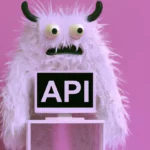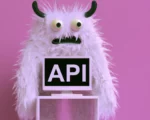AI vetting is revolutionizing the hiring process for software engineers, especially in technical interviews for developers at DEV3LOPCOM, LLC. We also created machine learning processes for our resume intake because we were forced into submission.
Trying to hire for one position internally, we attempted the LinkedIn “easy mode,” it helped us understand quickly that we need to operationalize how we handle resumes.
These innovative approaches are fundamental in software engineering, recruiting, data engineering, and saving time.
Consider the use case: Do we need to contact 300 people for interviews? After extensive natural language processing, data mining, and entity recognition, we learned only a tiny percentage have relevant experience. The “easy apply” means anyone will send you a resume, regardless of fit.
By adding a “now hiring” sign, We create a monster problem.
Before we started this “search for an expert,” we never imagined our small LLC in Austin, Texas, would gain 300+ resumes in less than a day, but that’s precisely what happened.
With the increasing demand for skilled developers and the recent boom in software engineering and advanced analytics, companies are turning to AI technology to streamline their recruitment efforts. This includes using technical interviews and candidate skills assessment to hire the best candidates. Now, many are looking to trust AI algorithms in interviews, using computer vision and GPT to check code interviews streaming live, which has become a game-changer in efficiently finding the next engineer and some obvious bias, too.
Is the boom of AI helping or hurting our business today? We will only know after we test for problems, fix bias, and implement better solutions.
Importance of AI vetting in the hiring process
Before we say AI is essential in vetting software engineers, we believe it’s equally important to understand how your algorithms could be biased based on testing strange use cases and determine if weighing resumes differently impacts the results. Recruiting teams should ask their technical team to test this software and not attempt to use it in a hidden environment. There must be transparency with IT and candidates, especially in the early testing stages.
AI is important in the hiring process because many people are looking for the same technical jobs; with 300 resumes and only so many hours in the day, what should a recruiter do? Trust AI Vetting? Should they keep digging into big data technology to find answers?
Often, recruiters do not consider creating NLP algorithms to manage their resumes and don’t have time to create custom Python solutions. Imagine without AI or ETL consulting services, converting PDF, docx, doc, and even text files into one application for simple word usage analysis.
Is Vetting in AI Necessary?
Maybe AI vetting is required, given the amount of resumes…
If not AI, we feel some sort of technical solution can be applied to the foundation of your hiring process, which will save you time. We recently found ourselves with a similar problem, and we needed to create NLP apps to help us with the problem.
Vetting AI is a crucial topic for blogs. It’s no secret that setting up the entire Python environment to analyze 300 resumes for one job posting can be daunting. We know this because it recently happened to us. Even for your most technically proficient recruiters, creating data solutions from this pile of files may not be feasible. After all, that’s not their job!
Many people do not have time to develop the solutions. If we do not build it, we must buy AI apps to help us with our workload.
Since the boom of GenAI, we see people believe their usage of ChatGPT and specialized boot camps is enough to pass technical interviews. However, it has become increasingly more challenging to find the right talent because many will attempt to use ChatGPT during the interview process.
Significance of Accurate Candidate Assessment through AI Vetting
In today’s competitive job market, it is crucial to ensure that the hiring process accurately assesses candidates’ skills and qualifications while also considering their fit with the brand. With the advent of ChatGPT and AI code generation, companies now have powerful tools to streamline and enhance this assessment process.
This is where AI vetting plays a vital role. By leveraging artificial intelligence algorithms for AI code generation, companies can evaluate candidates more efficiently and effectively, enhancing their brand. With GPT technology, companies can streamline the candidate evaluation process.
AI vetting allows recruiters to analyze various data points, such as resumes, coding challenges, and online portfolios, to gain insights into a candidate’s abilities and potential fit for the role. This comprehensive assessment provides a more accurate representation of a candidate’s capabilities than traditional methods.
Enhancing Objectivity and Reducing Bias in Candidate Evaluation with AI Technology
Human bias can often influence the hiring process, leading to unfair treatment or missed opportunities for qualified code candidates. However, by implementing AI code vetting tools, organizations can mitigate bias and promote objectivity in candidate evaluation.
AI algorithms are designed to focus solely on relevant skills and qualifications without being influenced by factors like age, gender, ethnicity, or code. This ensures that all candidates are evaluated based on merit rather than subjective biases.
Improving Efficiency by Automating Initial Screening Using AI Algorithms
The initial screening stage of the hiring process can be time-consuming for recruiters who have to review numerous code applications manually. However, with AI code vetting technology, reviewing and analyzing code becomes significantly more efficient.
By automating the initial screening process using AI algorithms, recruiters can quickly filter out unqualified candidates based on predefined criteria. This automated process involves analyzing the applicants’ resumes and assessing their skills and experience using advanced code. This saves valuable time and resources while allowing recruiters to focus on evaluating top-tier applicants who meet the desired qualifications.
Ensuring Fair Opportunities for All Candidates through Standardized Evaluations
One of the key benefits of utilizing AI code vetting in the hiring process is its ability to standardize evaluations across all candidates, regardless of their profile picture or your feelings about their education or experiences.
Traditional recruitment methods often rely on subjective assessments of a candidate’s code skills that vary from one recruiter to another. This can result in inconsistencies, bias, disqualifying good culture fits, and unfair treatment.
AI vetting tools provide a standardized evaluation process, ensuring all candidates are assessed using the same criteria. This promotes fairness and equal opportunities for everyone, regardless of background or personal connections. It provides that the code is fair and unbiased, giving everyone an equal chance.
Leveraging Data-Driven Insights to Make Informed Hiring Decisions
AI vetting code generates valuable data-driven insights that can assist recruiters in making informed hiring decisions. By analyzing large volumes of candidate information, AI algorithms can identify patterns and trends in the code that may not be apparent to human evaluators.
Imagine using computer vision to determine if the software engineer is engaged, listening, or not. This may help determine a variable that recently may not be caught because everyone is busy taking notes.
Many AI recording apps offer the ability to sync with your video conferencing solution, this enables voice-to-text, text later becoming consumable in the NLP pipeline, which means you could gain a dashboard about words used in all of your sales calls, and drill into the exact frame when the candidate said the wrong answer or right answer. This enables a playback, where previously we may have never heard them say such an interesting thing because our dog is barking in the background.
These insights help recruiters identify top-performing candidates who possess the core skills and qualities required for success in a specific role. AI technology can predict a candidate’s potential performance by analyzing historical code data, aiding decision-making in the hiring process.
Advantages and benefits of AI vetting for software engineers

Identifying Top Talent Efficiently
One of the significant advantages of using AI vetting for software engineers is the ability to identify top talent through code evaluation efficiently. By leveraging machine learning algorithms, recruiters and employers can streamline the hiring process and quickly identify candidates with the most potential. This is done by analyzing the candidate’s code. AI tools can analyze vast amounts of code-related data, such as resumes, GitHub profiles, and online coding assessments, to accurately assess a candidate’s technical skills, coding abilities, and problem-solving capabilities.
Assessing Technical Skills and Problem-Solving Abilities
AI code vetting tools enable recruiters to assess technical skills and problem-solving abilities objectively. These tools use sophisticated algorithms to evaluate code quality, analyze programming language proficiency, and even simulate real-world scenarios to test a candidate’s problem-solving capabilities. This approach ensures that candidates are assessed based on their abilities rather than relying solely on subjective judgments.
Reducing Human Error in Resume Evaluation
With traditional resume evaluation methods, human error can be prevalent due to fatigue or unconscious biases. However, by implementing automated systems powered by AI technology, organizations can significantly reduce human error in evaluating large volumes of resumes. AI tools can scan resumes for specific keywords or qualifications set by recruiters or employers. This helps ensure that qualified candidates are not overlooked during the initial screening process.
Saving Time and Effort with Automated Shortlisting
AI vetting for software engineers allows recruiters and employers to save time and effort by automating the shortlisting process. Instead of manually reviewing each resume individually, AI-powered systems can automatically shortlist qualified candidates based on predefined criteria set by recruiters or employers. This enables them to focus on candidates already filtered as potential matches for the job requirements.
Enabling Scalability in Candidate Evaluation
Another benefit of using AI vetting is its scalability across multiple positions simultaneously. With traditional methods, evaluating numerous candidates for different positions can be time-consuming and resource-intensive. However, AI-powered systems can handle the evaluation process for multiple positions simultaneously, allowing recruiters to efficiently manage a high volume of candidates without sacrificing quality or accuracy.
Addressing concerns and criticisms surrounding AI vetting
Mitigating biases inherent in algorithmic decision-making through continuous monitoring and improvement processes
One of the major concerns surrounding AI vetting for software engineers is the potential for biases to be embedded within the algorithms used for candidate assessment. However, it is essential to note that these biases are not inherent in AI but rather reflect the data on which the algorithms are trained.
To address this issue, continuous monitoring and improvement processes can be implemented. By regularly reviewing and analyzing the outcomes of AI vetting, organizations can identify any biases that may have emerged and take corrective measures. This could involve refining the training data or adjusting the algorithm to ensure fair evaluation of candidates from diverse backgrounds.
Furthermore, organizations can also establish diverse teams responsible for overseeing the AI vetting process. These teams can provide different perspectives and insights, helping to identify and rectify any potential biases that may arise.
Ensuring transparency by providing clear explanations behind algorithmic decisions made during candidate assessment
Another concern with AI vetting is its perceived lack of transparency. Candidates often question how decisions are made by these algorithms, leading to doubts about their fairness and accuracy.
To address this concern, it is crucial to ensure transparency throughout the AI vetting process. Organizations should strive to provide clear explanations behind algorithmic decisions made during candidate assessment. This could include sharing details about the factors considered, weights assigned to each factor, and how these factors contribute to overall evaluation.
By providing such transparency, organizations can help candidates understand how they were evaluated, fostering trust. It allows candidates to comment or report any inconsistencies or errors they may have noticed during their assessment.
Balancing automation with human oversight to avoid overreliance on technology alone during the hiring process
While AI vetting brings numerous benefits in terms of efficiency and scalability, there is a risk of overreliance on technology alone during the hiring process. It is essential to balance automation and human oversight to ensure thorough and accurate evaluations.
Human intervention is crucial for several reasons. Firstly, humans can bring contextual understanding and subjective judgment that algorithms may lack. They can interpret nuances, evaluate soft skills, and consider factors beyond the scope of AI algorithms.
Secondly, human oversight provides an opportunity to identify potential flaws or biases in the AI vetting process. By involving humans in decision-making, organizations can ensure that assessments are fair, unbiased, and aligned with their specific requirements.
Lastly, incorporating human interaction into the hiring process helps create a more personalized candidate experience. It allows them to engage with professionals who understand their unique skills and experiences better than any algorithm could.
To strike this balance effectively, organizations can implement a two-step process where AI algorithms are used as an initial screening tool followed by human evaluation for shortlisted candidates. This approach combines the efficiency of AI with the expertise and judgment of humans.
Integrating AI vetting into the hiring workflow
Incorporating AI tools seamlessly into existing applicant tracking systems (ATS) is a game-changer in streamlining the hiring process. With these integrated platforms powered by artificial intelligence technologies, resume screening, technical assessments, and interview scheduling have become more efficient.
Streamlining resume screening, technical assessments, and interview scheduling
By integrating AI vetting into the hiring workflow, recruiters can automate the initial screening of resumes. This saves valuable time and effort spent manually reviewing each application. AI-powered tools can quickly analyze resumes to identify relevant skills, experience, and qualifications based on predetermined criteria set by the recruiter.
Furthermore, these tools can also conduct technical assessments to evaluate a candidate’s coding abilities or problem-solving skills. By leveraging machine learning algorithms, they can adapt and customize evaluation criteria based on specific job requirements. This ensures that only candidates who meet the necessary skills are shortlisted for further consideration.
AI-powered platforms aid in interview scheduling by automating the process. They consider factors such as the availability of both recruiters and candidates to find suitable interview time slots. This eliminates back-and-forth communication between parties and reduces scheduling conflicts.
Customizing evaluation criteria based on specific job requirements
One of the key advantages of incorporating AI vetting is the ability to customize evaluation criteria based on specific job requirements. Recruiters can define essential skills or qualifications for a particular role and train machine learning algorithms accordingly. The AI system then uses this information to assess candidates against those predefined criteria.
This customization allows for a more targeted approach when evaluating applicants. Instead of relying solely on generic metrics or keywords present in resumes, recruiters can focus on identifying candidates who possess the exact skills required for a particular position.
Enhancing collaboration between recruiters and AI systems
Contrary to popular belief that AI will replace human recruiters entirely, integrating AI vetting into the hiring workflow enhances collaboration between recruiters and AI systems. These tools act as valuable assistants, providing insights and recommendations to recruiters based on data analysis.
Recruiters can leverage the expertise of AI systems to optimize candidate selection. By combining human judgment with AI insights, recruiters can make more informed decisions about which candidates to proceed with with the hiring process. This collaborative approach ensures that both the strengths of AI technology and human intuition are utilized effectively.
Leveraging AI insights to improve overall efficiency
Incorporating AI vetting into the hiring workflow not only streamlines processes but also improves the overall efficiency of the hiring process. By automating time-consuming tasks such as resume screening and interview scheduling, recruiters can focus their energy on other critical aspects of talent acquisition.
AI-powered platforms provide valuable insights through data analysis, allowing recruiters to identify patterns or trends in candidate profiles. This information can refine job descriptions, target specific skill sets, or identify potential areas for skills development within the organization.
Furthermore, by leveraging AI technologies, organizations can reduce bias in the hiring process. Machine learning algorithms are designed to evaluate candidates based on objective criteria rather than subjective judgments. This helps ensure a fair and unbiased evaluation of applicants.
Overcoming challenges in finding suitable global candidates
Some candidates will be excellent, and some are trying to grab the Halloween candy. Overcoming challenges in finding suitable global candidates takes time. However, the investment of time and money is well worth finding the right developer.

Expanding the Talent Pool with AI Vetting
In today’s interconnected world, finding suitable candidates for software engineering positions can be challenging. However, by leveraging AI vetting techniques, companies can expand their talent pool and identify qualified candidates globally. AI algorithms can analyze vast amounts of data to identify professionals who possess the necessary skills and qualifications for the job.
Assessing Language Proficiency and Cultural Fit
Language proficiency and cultural fit are crucial factors when considering global candidates. Automated screening processes powered by AI technology can help assess language proficiency accurately. By analyzing communication skills through written tests or voice recognition software, companies can ensure that candidates have the necessary language abilities to work effectively in an international team.
Furthermore, cultural fit is essential for successful collaboration within a diverse workforce. AI-based tools can analyze candidate profiles, social media presence, and other online information to gain insights into their values, interests, and potential compatibility with company culture.
Overcoming Geographical Barriers with Remote Interviewing Tools
Geographical barriers often pose challenges when hiring global candidates. However, AI-powered remote interviewing tools offer a solution to this problem. These tools enable companies to conduct interviews seamlessly across different time zones without requiring physical presence.
By utilizing video conferencing platforms enhanced with AI technology, recruiters can evaluate candidate’s technical skills and soft skills remotely. This not only saves time but also allows for efficient assessment of potential hires from anywhere in the world.
Evaluating International Qualifications Accurately
Evaluating international qualifications and certifications accurately is vital when considering global candidates. Traditional methods may struggle to interpret foreign educational systems or recognize equivalent qualifications from different countries. This is where AI algorithms come into play.
AI-powered systems can compare international credentials against recognized standards and provide accurate evaluations. By automating this process, companies can ensure fairness in evaluating qualifications while saving time in manual verification procedures.
Facilitating Cross-Border Collaborations
The world of software engineering thrives on collaboration and diverse skill sets. AI vetting can help identify software engineers with diverse backgrounds, experiences, and expertise. By leveraging AI algorithms to analyze resumes, portfolios, and coding samples, recruiters can identify candidates with the necessary skills for cross-border collaborations.
This not only enhances the quality of projects but also fosters innovation through the exchange of ideas from professionals around the world. With AI’s power to process vast amounts of data quickly, companies can tap into a global talent pool and build teams with complementary skill sets.
Data-driven decision making and security measures in AI vetting
In the fast-paced world of software engineering, finding suitable candidates can be a challenging task. However, with technological advancements, Artificial Intelligence (AI) has emerged as a valuable tool for streamlining the vetting process. Trusting AI vetting for software engineers requires robust data-driven decision-making and stringent security measures to safeguard candidate data privacy.
Safeguarding candidate data privacy through robust security protocols in AI vetting platforms
Ensuring the privacy and security of candidate data is of utmost importance. Robust security protocols must be implemented to protect sensitive information from unauthorized access or breaches. Powerful encryption methods should be employed to secure data transmission and storage.
Ensuring compliance with data protection regulations during candidate assessment processes
In an era where data protection regulations are becoming increasingly stringent, organizations must use AI vetting platforms to ensure compliance. Adhering to regulations such as the General Data Protection Regulation (GDPR) ensures that candidates’ personal information is handled responsibly and ethically.
Utilizing anonymized data for algorithm training to minimize bias and protect individual identities
To minimize bias and protect individual identities, AI vetting platforms should utilize anonymized data during algorithm training. By removing personally identifiable information (PII), such as names or addresses, from the dataset used for training algorithms, organizations can reduce the risk of discriminatory biases influencing hiring decisions.
Leveraging analytics from aggregated candidate data to make informed hiring decisions based on historical patterns and trends
One of the critical advantages of utilizing AI in vetting software engineers is the ability to leverage analytics from aggregated candidate data. By analyzing historical patterns and trends, organizations can make more informed hiring decisions. This allows them to identify top-performing candidates based on past successes or predict future performance based on correlations found within the dataset.
Implementing regular audits and assessments of AI systems’ performance, accuracy, and fairness
To ensure the effectiveness and fairness of AI vetting systems, regular audits and assessments must be conducted. These evaluations should focus on the system’s performance, accuracy, and fairness to identify potential biases or shortcomings. By proactively addressing these issues, organizations can continuously improve their AI vetting processes.
Embracing the future of hiring with AI vetting
In today’s fast-paced and competitive business landscape, companies must adapt their recruitment strategies to embrace technological advancements. One such advancement that holds great promise for the hiring process is AI vetting for software engineers. By harnessing the predictive analytics capabilities of AI systems, organizations can identify high-potential candidates early on and optimize resource allocation by automating repetitive tasks involved in candidate evaluation.
Adapting Recruitment Strategies to Embrace Technological Advancements
The traditional methods of hiring software engineers often rely on manual processes that can be time-consuming and prone to bias. However, with the emergence of AI vetting, companies now have access to powerful tools that can streamline their recruitment efforts. By using machine learning algorithms and natural language processing, AI systems can analyze vast amounts of data from resumes, coding tests, and online profiles to identify top candidates efficiently.
Harnessing Predictive Analytics Capabilities
AI vetting leverages the power of predictive analytics to assess a candidate’s potential fit within an organization. These systems can analyze historical data from successful hires and use it as a benchmark to evaluate new applicants. By identifying patterns and correlations between certain traits or experiences and job performance, AI systems can help recruiters make more informed decisions when shortlisting candidates.
Optimizing Resource Allocation through Automation
One significant advantage of AI vetting is its ability to automate repetitive tasks involved in candidate evaluation. Manual screening processes often require HR teams or hiring managers to sift through numerous resumes and applications manually. With AI-powered solutions, these tasks can be automated, allowing recruiters to focus their time and energy on more strategic aspects of the hiring process.
Evolving Recruitment Practices through Continuous Learning
AI vetting not only streamlines recruitment efforts but also provides valuable insights into changing industry demands. By continuously learning from AI-generated insights about successful hires’ characteristics or skill sets, organizations can evolve their recruitment practices to stay ahead of the curve. This data-driven approach ensures that companies are better equipped to identify candidates with the skills and qualities needed for success in a rapidly evolving industry.
Fostering Innovation by Embracing Cutting-Edge Technologies
By embracing AI vetting, companies demonstrate their commitment to innovation and staying at the forefront of technological advancements. In an era where technology is rapidly transforming industries, organizations willing to adopt cutting-edge solutions like AI vetting gain a competitive edge. Not only does this attract top talent eager to work with innovative technologies, but it also positions the company as forward-thinking and adaptable.
The Changing Role of Recruiters in the Age of AI
In today’s rapidly evolving technological landscape, recruiters are experiencing a significant shift in their roles and responsibilities. With the advent of AI vetting tools, the focus is gradually shifting from manual resume screening to more strategic talent acquisition activities. This transformation has brought about a change in the game for recruiters, requiring them to adapt and embrace new technologies to stay ahead.
Shifting Focus: Strategic Talent Acquisition Activities
Recruiters are no longer spending hours sifting through stacks of resumes. Thanks to AI vetting tools, they can automate the initial screening process, allowing them to allocate their time and effort towards more strategic talent acquisition activities. By leveraging advanced algorithms developed by HR technology experts, recruiters can enhance candidate evaluation processes effectively.
Collaborating with these experts enables recruiters to tap into powerful AI models that can analyze vast amounts of data quickly and accurately. These algorithms consider various factors such as skills, experience, qualifications, and even soft skills like communication and teamwork abilities. As a result, recruiters gain deeper insights into candidates’ potential fit for specific roles within organizations.
Adapting to New Responsibilities: Managing AI Systems
As AI becomes an integral part of recruitment processes, recruiters must take on new responsibilities related to managing these systems effectively. They need to familiarize themselves with the inner workings of AI vetting tools and understand how different algorithms function. This knowledge empowers them to interpret algorithmic outputs accurately.
Moreover, ethical considerations play a crucial role when utilizing AI in recruitment. Recruiters must ensure these tools are used responsibly and without bias or discrimination. They become responsible for monitoring the ethical usage of AI systems throughout the hiring process.
Utilizing AI Insights: Providing Recommendations and Guidance
AI vetting tools generate valuable insights that can assist recruiters in making informed decisions during candidate selection processes. By analyzing patterns and trends within candidate data sets, these tools provide recruiters with recommendations and guidance to help them identify the most suitable candidates for specific roles.
Recruiters can leverage these insights to have more meaningful conversations with hiring managers. By sharing AI-driven recommendations, they can provide valuable input on candidate suitability, potential cultural fit, and overall performance predictions. This collaborative approach enhances the decision-making process and ensures a better match between candidates and job requirements.
Developing Skills: Data Analysis and Interpretation
To make the most of AI-driven candidate assessment tools, recruiters must develop skills in data analysis and interpretation. They must be proficient in understanding and extracting meaningful insights from large volumes of candidate data generated by AI vetting systems. This includes identifying trends, patterns, and correlations relevant to the hiring process.
By honing their data analysis skills, recruiters become more effective at evaluating candidates’ qualifications objectively. They can identify hidden talents or unique skill sets that may not be apparent from a traditional resume review alone. This enables them to make more accurate assessments when shortlisting candidates for further evaluation.
Evaluating Fundamental Knowledge and Soft Skills with AI Vetting
In the world of software engineering, technical prowess is undoubtedly crucial. However, it’s equally important for candidates to possess solid and soft skills that enable effective collaboration and problem-solving. With the advent of AI vetting tools, recruiters now have a powerful ally in assessing both the foundational knowledge and interpersonal capabilities of software engineers.
We assess software engineers’ foundational knowledge through automated coding tests powered by AI algorithms.
Gone are the days when recruiters had to manually review countless lines of code to evaluate a candidate’s technical proficiency. With AI-powered coding tests, recruiters can now automate this process efficiently. These tests utilize advanced algorithms to assess a candidate’s understanding of programming languages, data structures, algorithms, and other fundamental concepts.
By leveraging AI algorithms, these automated coding tests provide accurate and objective evaluations of a candidate’s technical skills. This not only saves time for recruiters but also ensures that candidates are assessed somewhat based on their abilities rather than subjective biases.
We are identifying candidates’ soft skills, such as teamwork, communication, and problem-solving abilities, using natural language processing techniques.
While technical expertise is essential for software engineers, their ability to work well within a team and effectively communicate ideas is equally valuable. Fortunately, AI vetting tools can analyze written responses or conduct interviews using natural language processing (NLP) techniques to evaluate these soft skills.
Through NLP analysis, these tools can identify key indicators of effective communication, such as clarity of expression and concise problem-solving approaches. They can assess candidates’ ability to collaborate by analyzing their responses for evidence of teamwork and adaptability.
Customizing evaluation criteria for specific roles based on required technical expertise and desired interpersonal qualities.
Different software engineering roles require distinct sets of technical knowledge and interpersonal qualities. AI vetting platforms allow recruiters to customize evaluation criteria based on these requirements. Recruiters can define the necessary technical competencies and the desired soft skills for each role, ensuring that candidates are assessed against the appropriate benchmarks.
This customization enables recruiters to identify candidates with a balanced technical proficiency and interpersonal capabilities. By tailoring the evaluation criteria, recruiters can ensure that candidates align with their organization’s unique needs and culture.
We are streamlining the assessment of technical competencies and essential soft skills using integrated AI vetting platforms.
Traditionally, assessing technical competencies and soft skills required separate processes, often conducted by different individuals or teams. However, integrated AI vetting platforms now streamline this assessment by combining automated coding tests with NLP analysis in a single platform.
These platforms provide a comprehensive evaluation of candidates’ abilities by seamlessly integrating technical assessments with soft skill evaluations. Recruiters can efficiently assess a candidate’s suitability for a role without having to switch between multiple tools or conduct separate interviews.
We leverage machine learning algorithms to identify candidates with a balanced technical proficiency and interpersonal capabilities.
AI vetting tools not only automate the assessment process but also leverage machine learning algorithms to improve their evaluation capabilities continuously. These algorithms analyze vast amounts of data from successful hires to identify patterns that correlate with job performance.
By leveraging these insights, recruiters can make data-driven decisions when evaluating candidates’ technical competencies and soft skills. This ensures that they are more likely to identify individuals who possess the right blend of expertise and interpersonal qualities necessary for success in software engineering roles.
Reducing Human Error through AI Vetting
Minimizing Subjective Biases in Candidate Evaluation
Subjective biases can sometimes influence human judgment. These biases can include personal preferences, stereotypes, or even unconscious prejudices. However, relying on objective data-driven assessments provided by AI vetting tools, we can minimize these biases and ensure a fair evaluation process.
AI vetting tools use algorithms to analyze various aspects of a candidate’s profile, including their skills, experience, and qualifications. By focusing solely on the relevant data and removing any subjective interpretation from the equation, these tools provide an unbiased assessment of a candidate’s suitability for a role.
Eliminating Manual Errors in Repetitive Tasks
One of the challenges recruiters face is the repetitive nature of specific tasks involved in the hiring process. Resume screening and scoring coding assessments require careful attention to detail. However, humans are prone to errors due to fatigue or oversight when performing these repetitive tasks manually.
By leveraging artificial intelligence, we can automate these tasks and eliminate manual errors. AI-powered systems can efficiently screen resumes based on predefined criteria and score coding assessments objectively. This not only saves time but also ensures accuracy in candidate evaluation.
Enhancing Accuracy through Machine Learning Algorithms
Artificial intelligence has significantly advanced machine learning algorithms that continuously learn from past evaluations. This ability allows AI vetting tools to enhance accuracy over time by analyzing patterns and trends within large datasets.
By leveraging machine learning algorithms, recruiters can benefit from more accurate identification of qualified candidates. The system learns from past successful hires and identifies critical attributes contributing to success in specific roles. As a result, recruiters can access valuable insights that help them make informed decisions during the hiring process.
Improving Consistency across Recruiters and Hiring Teams
In traditional hiring processes where human judgment is solely relied upon, inconsistencies can arise due to variations in individual recruiters’ preferences and biases. Different recruiters or hiring teams may evaluate candidates differently, leading to inconsistent assessment outcomes.
AI vetting tools can help standardize the candidate assessment process by implementing predefined criteria. These tools ensure that all candidates are evaluated based on the same set of parameters, regardless of who is conducting the evaluation. This consistency promotes fairness and eliminates potential discrepancies in candidate assessment.
Reducing the Risk of Human Oversight or Fatigue
Humans can experience fatigue or overlook important details. The risk of human oversight increases as the volume of applications or assessments grows.
By incorporating AI vetting into the hiring process, we can reduce this risk significantly. AI systems do not experience fatigue and can process large volumes of data without compromising accuracy. They meticulously analyze each candidate’s profile and provide comprehensive insights that might otherwise be missed due to human limitations.
Conclusion: Trusting AI Vetting for Software Engineers
Congratulations! You’ve reached the end of our blog post on trusting AI vetting for software engineers. Throughout this journey, we have explored the importance, advantages, and challenges of integrating AI into the hiring process. By embracing this technology, you can revolutionize your recruitment strategy and find the best global candidates with ease.
Now that you understand the benefits of AI vetting, it’s time to take action. Start by incorporating AI into your hiring workflow and leveraging its data-driven decision-making capabilities. Embrace the future of hiring and reduce human error by trusting AI to evaluate fundamental knowledge and soft skills. With these tools, you’ll be well-equipped to find top-tier software engineers to drive your company’s success.
FAQs
Can AI vetting completely replace human recruiters?
No, AI vetting cannot entirely replace human recruiters. While AI can streamline the initial screening process and help identify potential candidates efficiently, human recruiters bring essential qualities like empathy and intuition. They can assess cultural fit and interpersonal skills and make nuanced judgments that machines may struggle with.
Are there any ethical concerns associated with using AI in recruitment?
Yes, ethical concerns exist when using AI in recruitment. It is crucial to ensure fairness, transparency, and accountability throughout the process. Bias in algorithms or data sets can lead to discriminatory practices or exclusionary outcomes. Regular audits should be conducted to mitigate these risks and ensure that decisions made by AI are justifiable.
How accurate is AI vetting compared to traditional methods?
AI vetting has shown promising results in accuracy compared to traditional methods. Machine learning algorithms can analyze vast amounts of data quickly and identify patterns that may not be apparent to humans alone. However, it is essential to remember that no system is perfect, and human oversight is necessary for validation.
What types of roles can AI vetting be used for?
AI vetting can be used for various roles, but it is particularly effective in technical fields like software engineering. It can assess candidates’ coding skills, problem-solving abilities, and domain knowledge. However, AI vetting can also be adapted to evaluate other skills and competencies required for different positions.
How can I ensure the security of candidate data during AI vetting?
To ensure the security of candidate data during AI vetting, it is crucial to implement robust security measures. This includes encryption protocols, restricted access to sensitive information, regular vulnerability assessments, and compliance with data protection regulations such as GDPR. Partnering with reputable AI vendors who prioritize data privacy is also essential.
Remember that embracing AI in your recruitment strategy doesn’t mean replacing human judgment entirely. By combining the power of technology with human expertise, you can create a hiring process that is efficient, fair, and effective. Good luck on your journey towards finding exceptional software engineers!


















